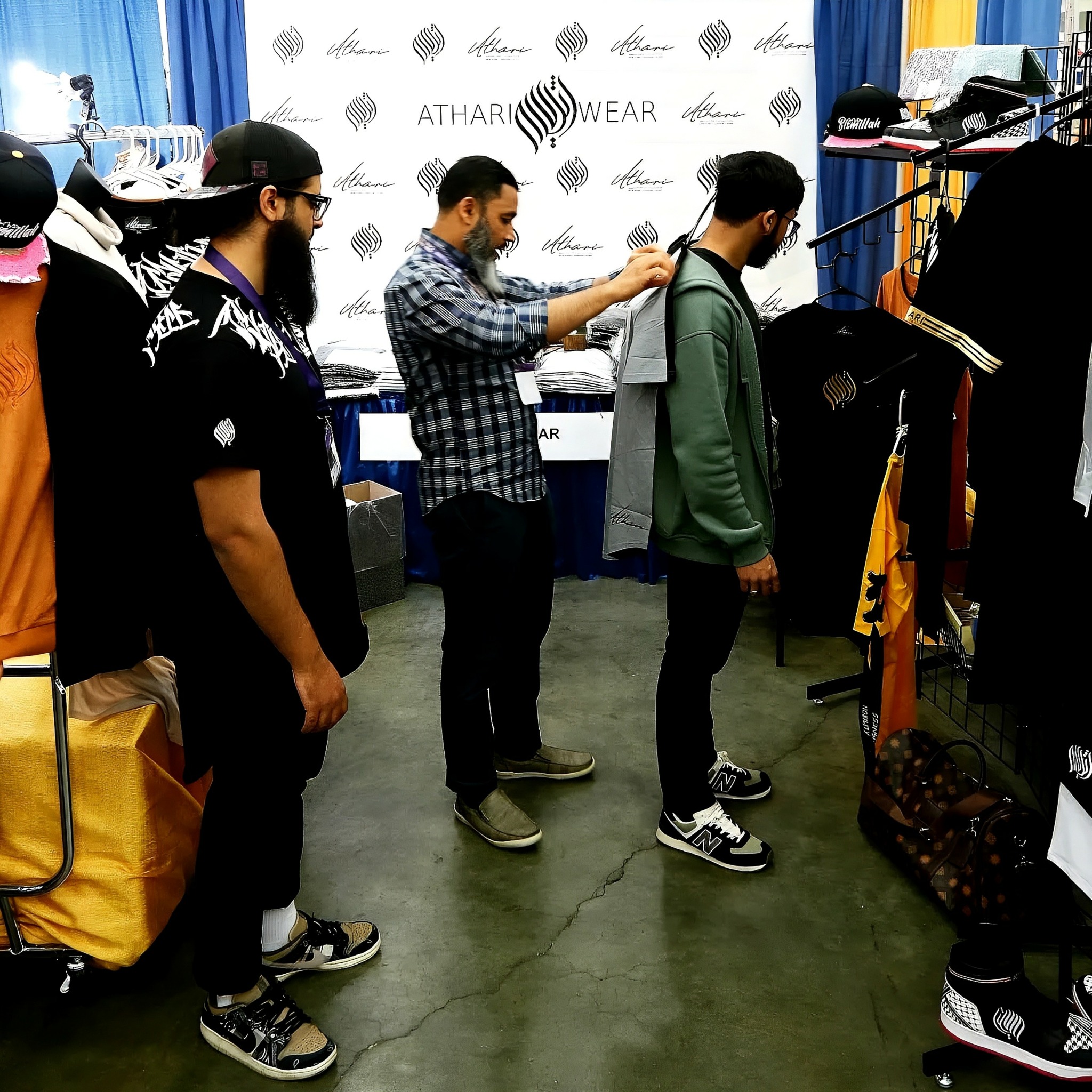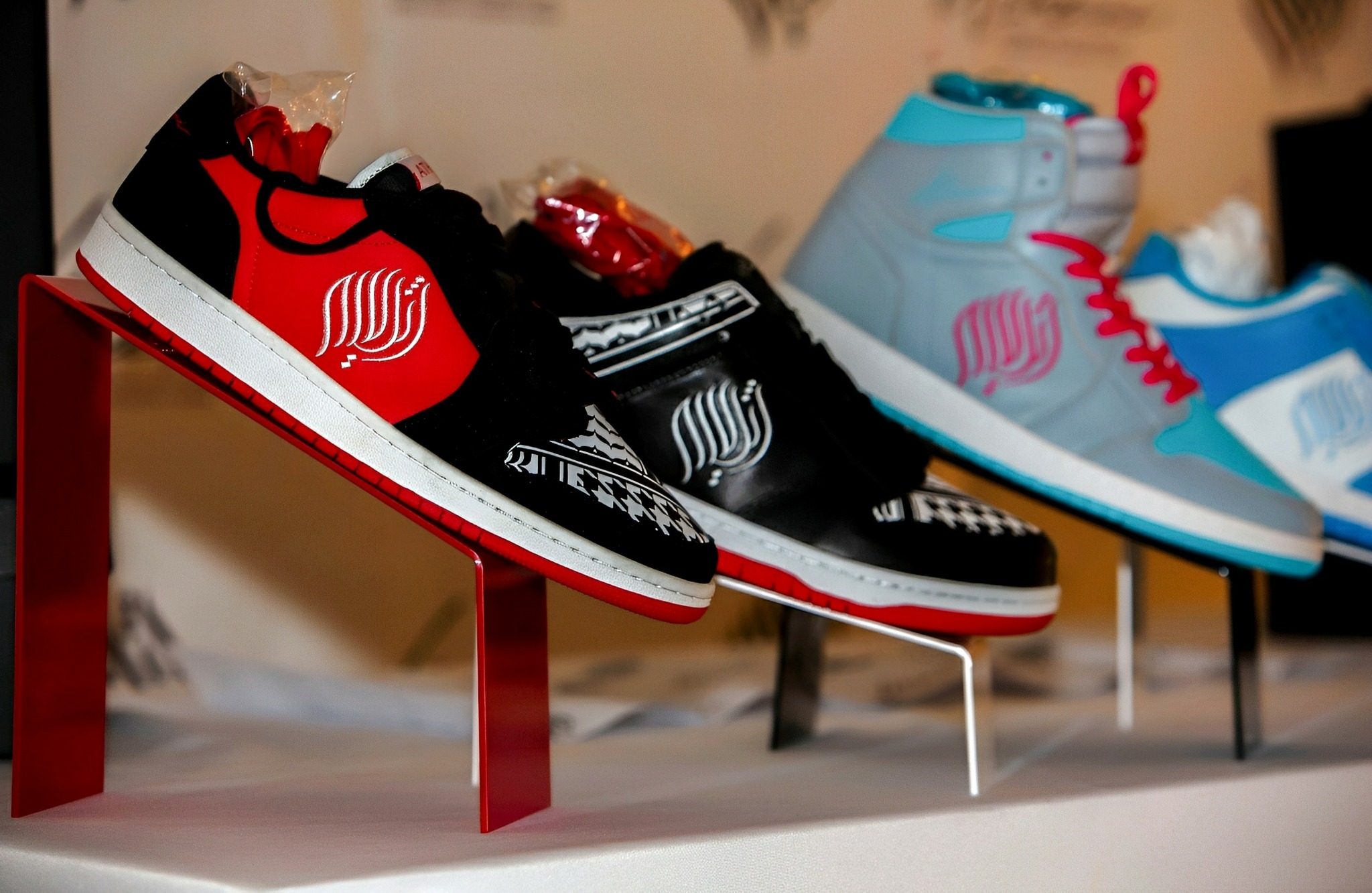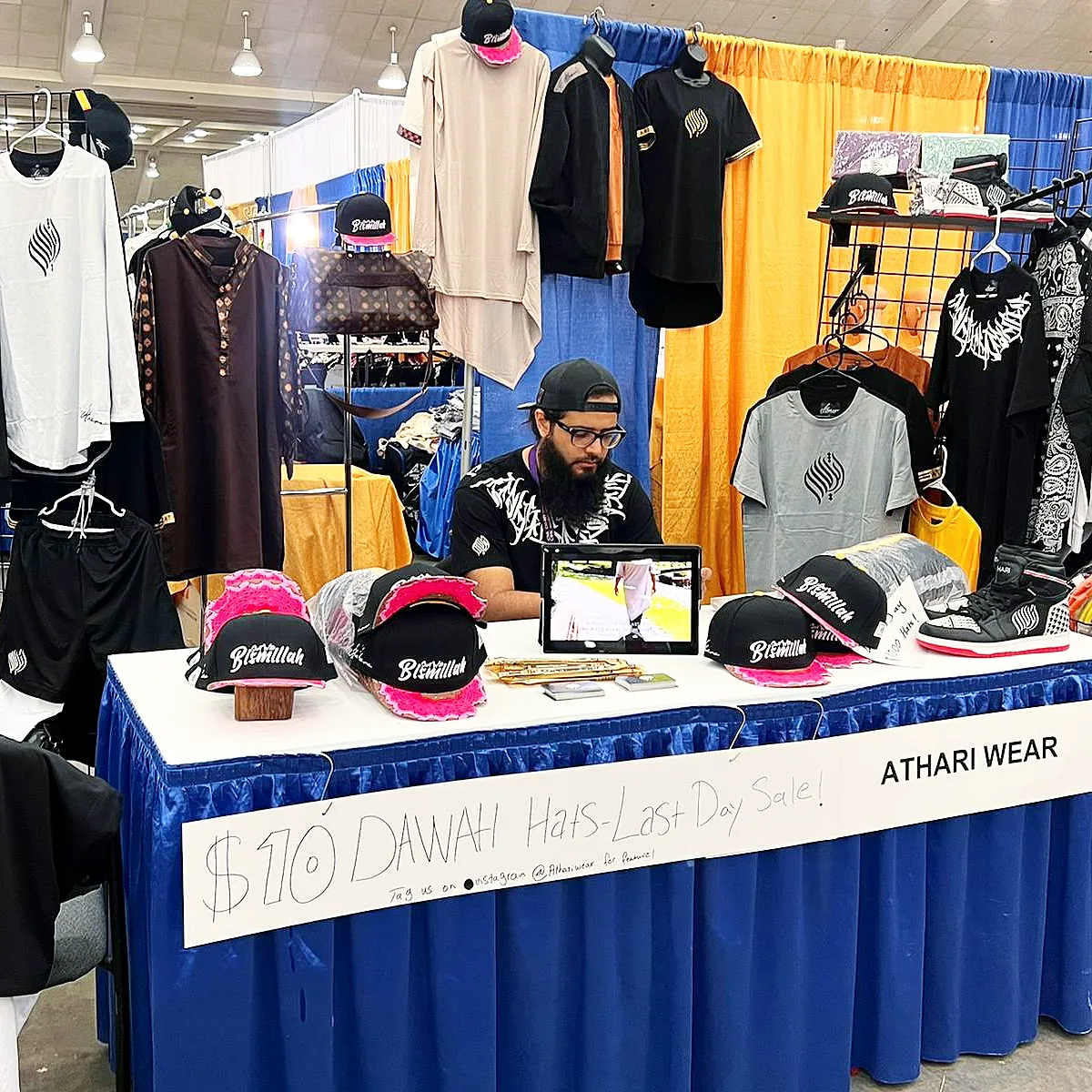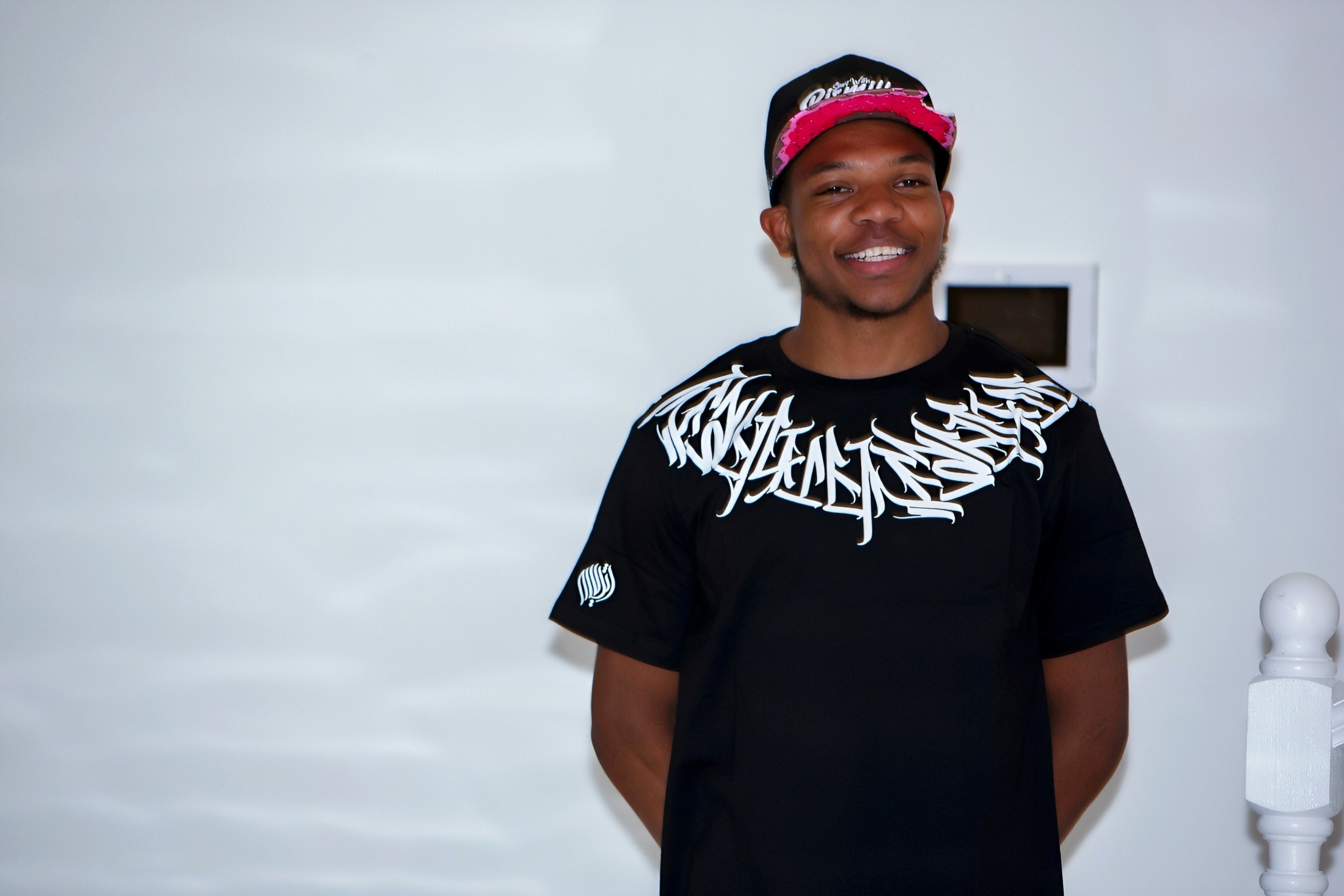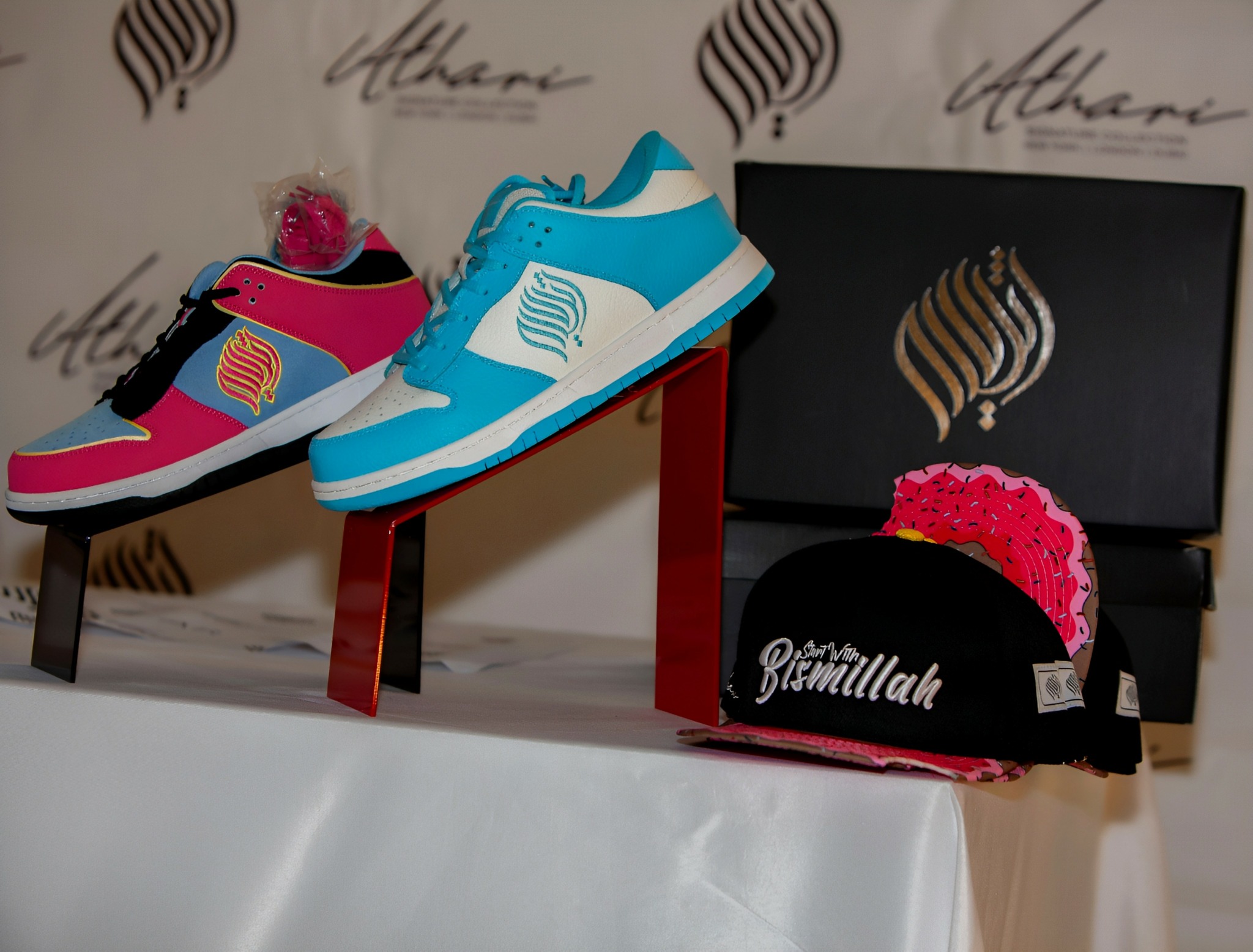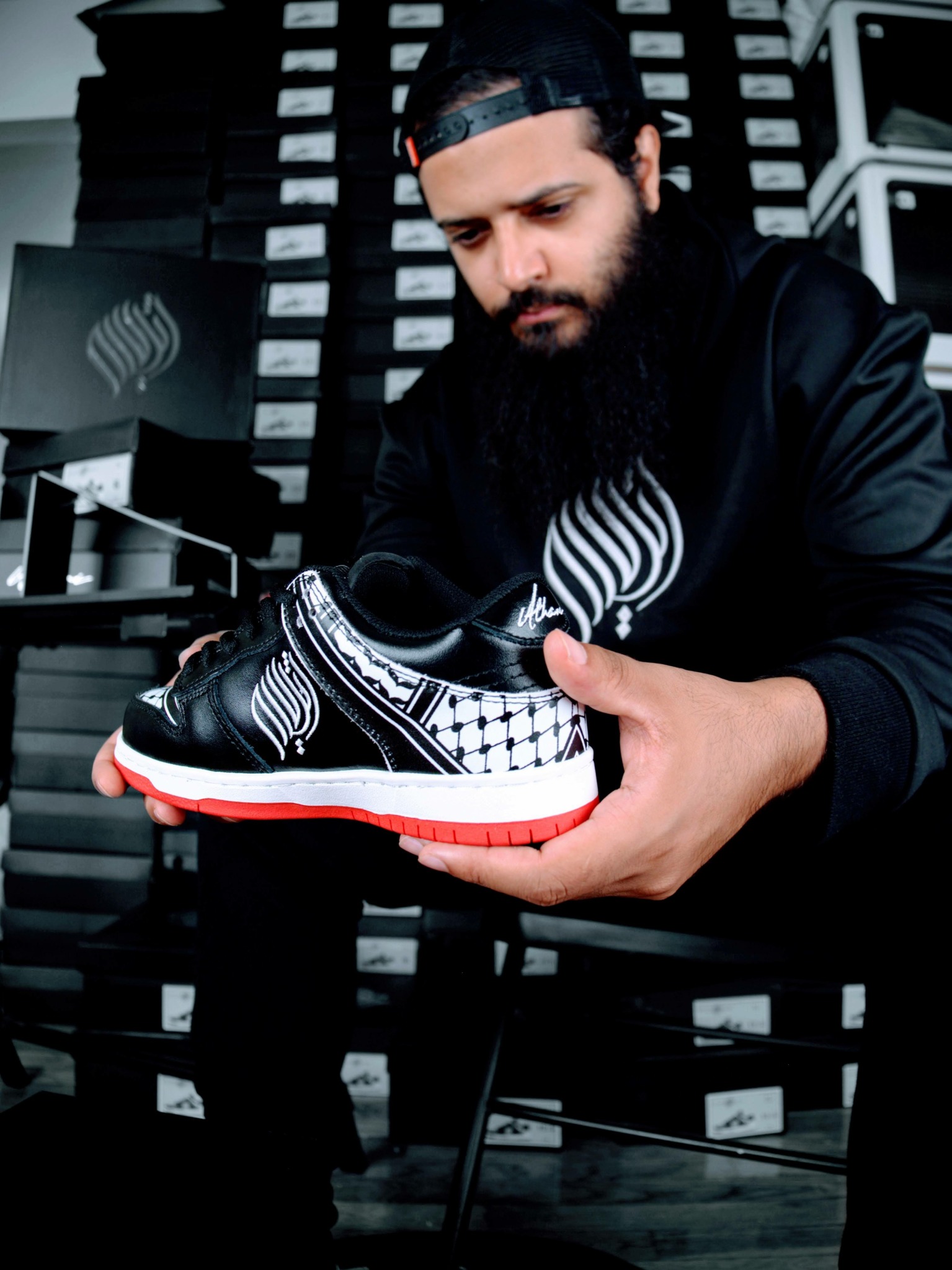We were lucky to catch up with Islam El-Hoseiny recently and have shared our conversation below.
Islam, thanks for taking the time to share your stories with us today So let’s jump to your mission – what’s the backstory behind how you developed the mission that drives your brand?
Athari Wear was born out of both personal struggle and purpose. I came from working in one of the biggest fashion corporations in America, where I saw firsthand how profit often came before people. When I stood up for my values, I lost that job, but that moment pushed me to build something greater.
I created Athari Wear to represent a community that is often overlooked in mainstream fashion: Muslims, immigrants, and underserved voices who rarely see their identity reflected in global brands. I started with just a small sewing machine, a laptop that barely worked, and pure determination. Today, Athari Wear is the first Muslim-owned sneaker brand in the U.S., blending design, culture, and legacy into something far deeper than just clothing.
For me, sneakers aren’t just sneakers. They’re a statement, a story, and a way to walk with dignity while representing who you are. Athari Wear’s mission is to give voice to a community that has been underrepresented, to build with integrity, and to leave behind a legacy that’s bigger than fashion.
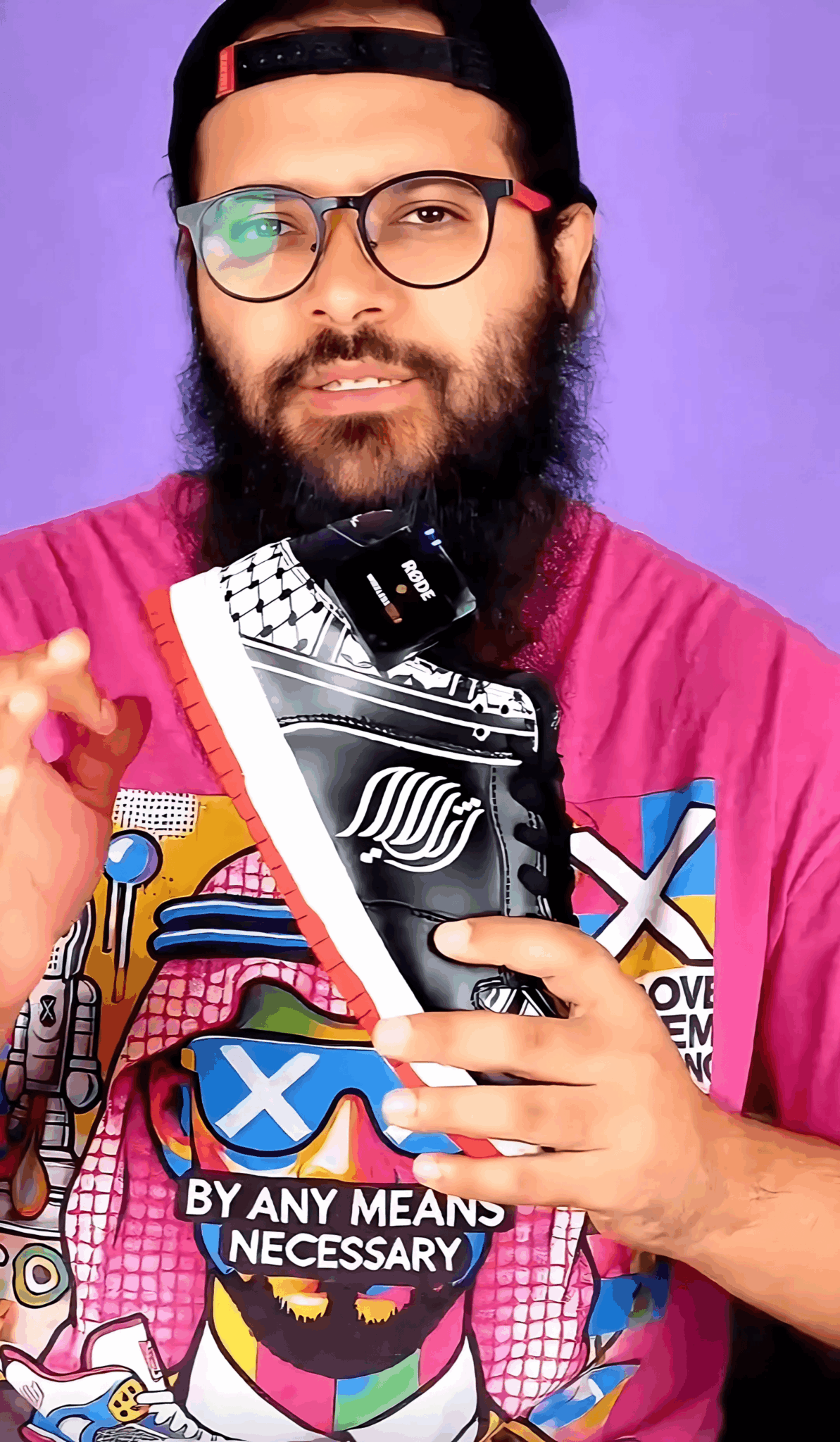
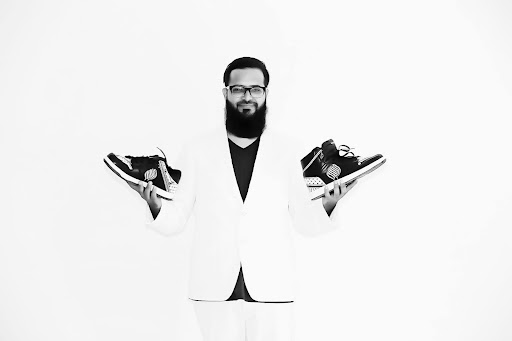
Awesome – so before we get into the rest of our questions, can you briefly introduce yourself to our readers.
My name is Islam Mohamed El-Hoseiny, and I’m the founder of Athari Wear, the first Muslim-owned sneaker brand in the United States. My journey into this industry wasn’t a smooth or traditional one. I worked for years in one of the largest fashion corporations in America, managing logistics and operations at scale. While that experience gave me deep insight into how the industry functions, I also saw how much of it was driven by profit at the expense of values, people, and authenticity. Eventually, when I stood firmly for my morals and beliefs, I lost that position, but that moment became the turning point.
With minimal resources a fire igniting inside, and my background in graphic design, I started teaching myself fashion design. I made mistakes, spread myself too thin at first, and faced setbacks, but every step was part of building Athari Wear. What began as a small vision has now grown into a movement that blends design, culture, and legacy.
At Athari Wear, we create premium sneakers, thobes, apparel, and accessories, but more than that, we create products with meaning. Every design tells a story. From our Victory Force Keffiyeh sneakers that symbolize solidarity and resilience, to our collaborations like the Mutah Beale Napoleon “33” sneaker reflecting transformation and faith, our products aren’t just fashion items. They’re statements of identity, pride, and belonging.
What sets us apart is that we aren’t trying to fit into the mold of mainstream fashion, we’re building a new lane. Athari Wear is for those who feel unseen by the corporate industry, for people who want their clothing to reflect their values, heritage, and narrative. It’s about walking with dignity, not just style.
I’m most proud of how Athari Wear has grown from humble beginnings, vending in the cold on the streets and facing constant financial and logistical challenges, to now being featured at major conventions, worn by artists, athletes, and community leaders, and embraced by people worldwide. Every time a customer tells me they feel represented by our brand, that’s a victory bigger than sales.
What I want readers, potential clients, and supporters to know is this: Athari Wear isn’t just clothing. It’s a community-driven brand with a mission. It’s about building legacy, giving voice to the underserved, and proving that values and creativity can exist together in fashion. We’re not just selling sneakers, we’re telling stories, carrying culture, and leaving footprints for the next generation to walk proudly in.
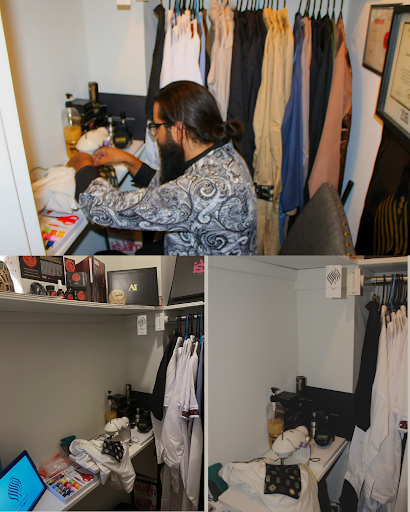
How about pivoting – can you share the story of a time you’ve had to pivot?
One of the biggest pivots in my life happened when I got terminated from my job as a senior supervisor at one of the largest fashion corporations in America. I was in a stable position, managing major logistics operations, but when I stood up for my morals and beliefs, I was let go. That was a defining moment, I could have tried to play it safe and find another corporate job, but instead I decided to completely pivot.
With very little money, a mini sewing machine, and a secondhand laptop, I taught myself how to design sneakers and apparel. At first, I made mistakes, producing too many designs without perfecting one, dealing with unprofessional manufacturers overseas, and losing both time and money. It was frustrating and humbling.
But the pivot didn’t stop there. When I first launched Athari Wear, my designs were extremely niche, rooted deeply in symbolism and cultural references that not everyone immediately connected with. Over time, I realized that while staying true to my identity was non-negotiable, I also had to create sneakers and apparel that felt relatable and wearable for a wider audience. So I pivoted again, refining my design philosophy to balance cultural depth with universal appeal. That shift allowed Athari Wear to grow from a niche idea into a brand embraced by people from all walks of life.
Today, Athari Wear is the first Muslim-owned sneaker brand in the U.S., and every time someone puts on a pair, I’m reminded that what once looked like a loss was actually the beginning of something much greater. My pivots , both in life and within my business — taught me that setbacks are often redirections, and that flexibility is just as important as resilience.
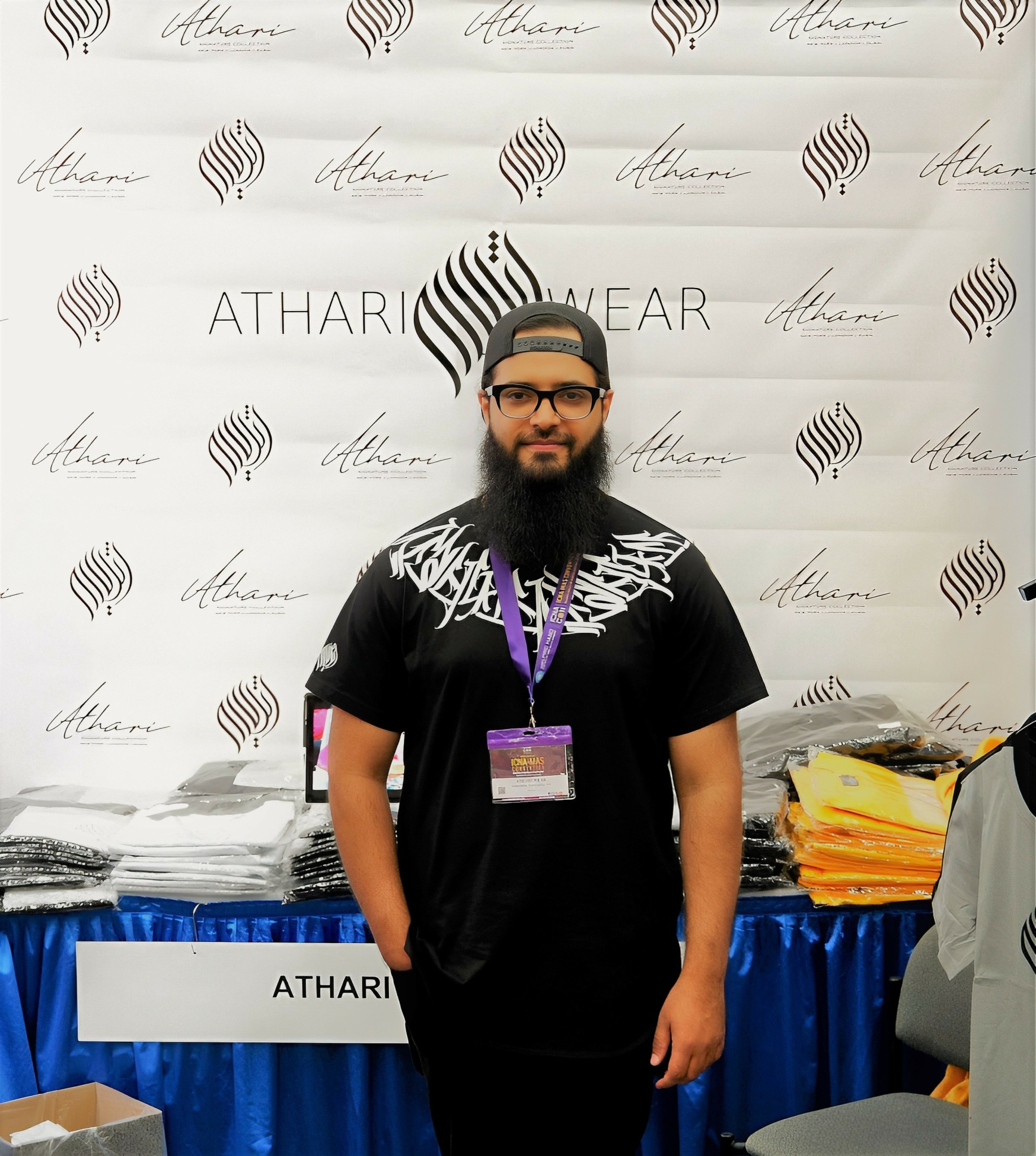
What’s a lesson you had to unlearn and what’s the backstory?
One of the hardest lessons I had to unlearn was the idea that more designs automatically meant more success. When I first started Athari Wear, I spread myself too thin, producing too many different sneakers and apparel items before I had even perfected one. I thought variety would prove legitimacy, but instead, it drained resources, created inconsistencies, and slowed growth.
Coming from the corporate fashion world, I had been conditioned to think in terms of scale and volume. But as an independent founder with limited resources, I had to unlearn that mindset. I realized that quality and focus are far more powerful than quantity. Perfecting one sneaker, perfecting one T-shirt, making sure the design, story, and production were all aligned, had a bigger impact than releasing five rushed ones.
That shift in mindset allowed Athari Wear to grow. Our sneakers became more refined, our storytelling sharper, and our brand identity stronger. It also built deeper trust with customers, who saw that every product had meaning, not just a logo slapped on.
Unlearning that “more is better” mentality was difficult, but it freed me to build Athari Wear in a way that is sustainable, intentional, and authentic.
Contact Info:
- Website: https://www.athariwear.com
- Instagram: https://www.instagram.com/athariwear
- Facebook: https://www.facebook.com/athariwear
- Linkedin: https://www.linkedin.com/in/islam-mohamed-el-hoseiny-a4153725
- Twitter: https://x.com/AthariWear
- Youtube: https://www.youtube.com/@AthariWear
- Other: https://www.instagram.com/islamartsnyc
